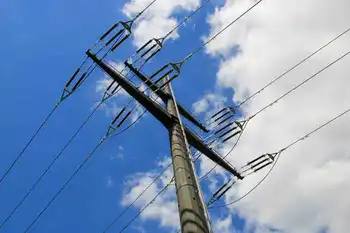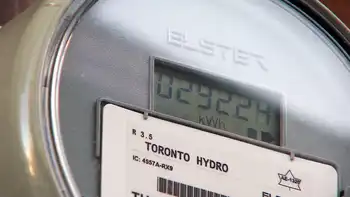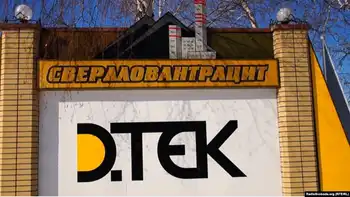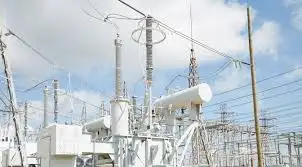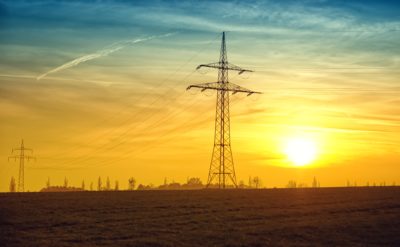U.S. still committed to nuclear power
By Reuters
Protective Relay Training - Basic
Our customized live online or in‑person group training can be delivered to your staff at your location.

- Live Online
- 12 hours Instructor-led
- Group Training Available
Germany has suspended an agreement to extend the life of its nuclear power stations, Switzerland put on hold some approvals for nuclear power plants, and Taiwan's state-run Taipower said it was studying plans to cut nuclear power output.
While in the United States, the White House said that President Barack Obama was still committed to keeping nuclear as part of the U.S. energy mix, analysts predicted that a $10 billion nuclear plant expansion by NRG Energy Inc in South Texas may now fail to get government loan support.
There was also a push from Germany to join France in leading a debate about nuclear safety within the G20 industrialized and emerging countries, and Chancellor Angela Merkel said she wanted to harmonize nuclear safety standards across Europe.
Beneficiaries of the erosion of confidence in nuclear power included renewable energy companies such as those in the wind power and solar industries, whose stocks gained. Producers of greener fuels such as natural gas also got a boost.
Japanese engineers raced to prevent a meltdown at the stricken Fukushima nuclear power complex north of Tokyo that was hit badly by the devastating earthquake and tsunami.
Explosions have rocked three reactors over the past few days and fuel rods were dangerously exposed in at least one of them, though the United Nations' nuclear watchdog said the crisis was unlikely to be as bad as the Chernobyl explosion in Ukraine in 1986, which spewed radiation over a large area of Europe.
Even if the crisis doesn't turn into a nuclear disaster it is likely to increase opposition to major nuclear expansion in Europe and could easily hurt a renaissance for the sector in the United States, which already has more than 100 reactors.
Shares of conglomerate General Electric, which makes nuclear plant equipment, fell 2.2 percent, while Canada's Cameco, the global No. 2 uranium producer, lost 13 percent, and Uranium One, fell nearly 28 percent.
Engineering and construction company Shaw Group, part of a consortium that plans to build several plants around the world and at least two reactors in the United States, including the one in South Texas, also got hit — its shares tumbled 9 percent.
U.S. nuclear power plant operators also suffered, particularly Entergy Corp, which could face new hurdles in extending the life of its Indian Point nuclear plant in New York state. Its shares fell 4.9 percent.
In Europe, the picture was similar, the European utilities sector, including heavyweights E.ON and RWE, was down 2 percent, and shares in France's Areva, the world's largest nuclear plant builder, dived 10 percent.
The risks associated with nuclear energy could further push new-build programs onto the backburner in Britain and the United States, global political risk analysts the Eurasia Group said.
"Political discussions are likely to focus on a rethinking of the use of nuclear power, which may involve discussions regarding a more central role of solar," said Michael Tappeiner, an analyst at UniCredit.
Still, some analysts and investors said the gloom was overdone.
"Meltdown is a very big word in people's minds, so I think that the public sentiment is probably going to swing against nuclear power," said BMO Capital Markets analyst Edward Sterck. "But I don't think this is the end of the nuclear industry."
Nuclear is an integral part of the Clean Energy Standard that Obama has been pushing to win support for reducing dependence on oil and coal in the U.S. The plan requires power companies to produce 80 percent of their electricity from clean sources including natural gas, "clean coal," renewables like solar and wind power, and nuclear by 2035.
"We view nuclear energy as a very important component to the overall portfolio we're trying to build for a clean-energy future," U.S. Deputy Energy Secretary Daniel Poneman told reporters at the White House.
Poneman said the administration believed U.S. nuclear plants are safe, though it remains to be seen whether U.S. public opinion swings against nuclear energy and there are some concerns that government financing may be more restrictive.
"For NRG Energy we think the potential added pressure could be the end of its nuclear loan guarantee award from the Department of Energy," Barclays wrote in a note to clients.
Earlier this month, the company's plan to build and operate two new nuclear reactors at the plant 90 miles southwest of Houston, Texas, cleared a U.S. government environmental hurdle as the company and its partner Toshiba Corp kept working to obtain the federal loan support.
Tokyo Electric Power Co, the owner of the stricken plant in Japan, has also agreed to invest $125 million in the project, but that investment is contingent on the loan support.
Asia's insatiable appetite for electricity is unlikely to derail nuclear programs but there might be a reassessment of design and safety and more diversification of energy sources.
KGI Asia analyst Jennifer Liang said the nuclear incident had strengthened the case for safer sources of renewable energy but she also pointed to the current limitations.
"The solar or wind industry is still young and is unlikely to replace nuclear use in the near or medium term," she said from Taipei. "How do you replace the base load power from nuclear?"
Nuclear accounts for 30 percent of Japan's electricity.
"While Japan may stick to nuclear, it nuclear program will likely suffer delays and there will be more cost overruns," said Thiemo Lang, a Zurich-based senior portfolio manager with Sustainable Asset Management.
"Going forward, the scenario would be that Japan will reassess its nuclear program and will tap natural gas to assure energy supply and increase renewables," Lang added.
China, which has 13 reactors in operation and dozens under construction or planned, said its plants are safe but that the government would learn lessons from the Japanese crisis.
The Nuclear Power Corporation of India Ltd. NPCIL, the country's monopoly nuclear power producer and operator of 20 reactors, said the events in Japan had prompted a safety review.
Among the shares in renewable energy companies to rise were First Solar, up 5.13 percent and Trina Solar, which jumped 7.3 percent.





